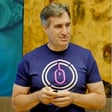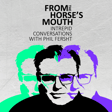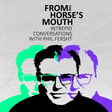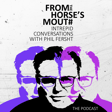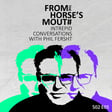
Sandeep Dadlani: Why Healthcare Needs AI That Listens—Not Just Learns
We don’t need more dashboards—we need more listening.
In this episode, Phil Fersht sits down with Sandeep Dadlani, the Executive Vice President and Chief Digital and Technology Officer at UnitedHealth Group, to explore what fundamental healthcare transformation looks like in the age of AI.
Sandeep dives into how UnitedHealth is deploying ambient AI and agentic systems to reduce clinical burnout, improve access to care, and, most importantly, bring empathy back into the doctor-patient relationship.
This is AI designed to serve, not replace. And it’s already in the hands of thousands of clinicians.
What You’ll Hear in 30 Minutes
- Why healthcare has a tech problem and a humanity problem
- How ambient listening AI is giving doctors their time—and their focus—back
- What “agentic AI” really means in clinical workflows
- The risks of bad AI and the urgency of building trusted systems
- How to scale AI in ways that respect patients, doctors, and outcomes
Guest Snapshots
Sandeep Dadlani is the Executive Vice President and Chief Digital & Technology Officer at UnitedHealth Group, where he leads the charge in rethinking how one of the world’s largest healthcare companies uses technology. With prior roles at Mars and Infosys, Sandeep brings a rare blend of consumer empathy and enterprise tech savvy. His current mission? Use AI to fix the system without losing sight of the people it’s meant to serve.
Timestamps
00:00 – Welcome and Introductions
01:20 – Why Healthcare Needs a Reboot
03:48 – What “Frictionless” Really Means in Care
06:35 – Agentic AI: More Than a Buzzword
08:12 – Ambient Listening: Letting Doctors Be Doctors
12:47 – Creating Space for Human Connection
14:40 – Scaling AI to 2,000+ Clinicians
16:22 – Designing Tech That Actually Helps
18:57 – Building for Real People, Not Just Processes
22:10 – Where Healthcare Transformation Goes Next
24:36 – Closing Thoughts: A More Human Future
Explore More
🌐 Learn more about UnitedHealth Group: https://www.unitedhealthgroup.com/
🔗 Follow Sandeep Dadlani on LinkedIn: https://www.linkedin.com/in/sdadlani/
🔗 Follow Phil Fersht: https://www.linkedin.com/in/pfersht/
🔗 More from HFS Research: https://www.hfsresearch.com

